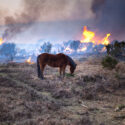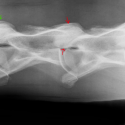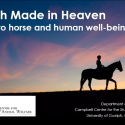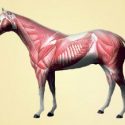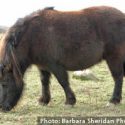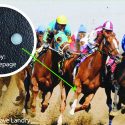Equine Guelph Research
20 Years of Supporting the Global Equine Community
By: Anya Barradas This summer, Equine Guelph celebrates its 20th anniversary. The award-winning centre at the University of Guelph is dedicated to improving the health and welfare of horses through education and research. “Over the years, our centre has become a model for online equine education programs and a hub for horse professionals from around…
Air Quality and Air Pollution’s Impact on Your Horse’s Lungs
Story by: Dr. Janet Beeler-Marfisi There’s nothing like hearing a horse cough to set people scurrying around the barn to identify the culprit. After all, that cough could mean choke, or a respiratory virus has found its way into the barn. It could also indicate equine asthma. Yes, even those “everyday coughs” that we sometimes…
Screening for biomarkers & indicators of intestinal health among equine microbiota
No one will argue that prevention is better than cure and early intervention is certainly preferable to watching an equine partner go from not feeling 100% to being completely sidelined. Ontario Veterinary College researcher, Dr. Luis Arroyo is embarking on a very interesting collaborative study that may result in the ability to detect the first…
Research Study on Diagnostics for Equine Osteoarthritis of the Neck
Radiographs have been found to be insufficient evidence for diagnosing Cervical Facet disease according to a research study by Dr. Judith Koenig and a team of researchers at the Ontario Veterinary College. In a video interview, Koenig explains some of the complexities of equine osteoarthritis and cervical facet disease. “Osteoarthritis is common in any athlete,” explains…
Horse human interaction studies
Horse human interaction studies were discussed in a talk presented by Dr. Katrina Merkies, Ontario Agricultural College at the three day virtual conference hosted by the International Society for Equitation Science (ISES). With around 50 recent horse behavior studies referenced in the 40 minute presentation (and apologies for the many not mentioned), there is an undeniable growing…
3-D Printing Research Creates Model of Equine Neck for Veterinary Training
Practice makes perfect and veterinarians spend countless hours honing their skills in laboratories before graduating and applying that knowledge in the field. Anatomical models of the equine neck, created by 3-D printing, are revolutionizing how veterinary students and graduates will practice the precise placement required in ultrasound-guided injections. Dr. Alex zur Linden, radiologist and Ontario Veterinary…
Innovative Research on Equine Lameness & Equine Conditioning Tips
Could biologic therapies be the future for treating joint disease? Ontario Veterinary College researcher, Dr. Mark Hurtig and his team are investigating novel new methods to potentially repair tissue rather than just suppressing the signs of joint disease. Hurtig also explains the mechanism and contributing factors to fetlock chip fractures stating they can be related to the…
Changes in Gut microflora could provide early warning of EMS
Early diagnosis of Equine Metabolic Syndrome (EMS) is an important area of study especially considering one of the first signs can be laminitis, a serious and sometimes life-ending condition. Catching EMS in its initial stages can facilitate early intervention with an appropriate exercise and diet plan to reduce the chances of laminitis developing. In a…
Good Things in Small Packages – Stem Cell Therapy Updates
“It’s approximately four millimeters in diameter,” exclaimed Ontario Veterinary College researcher, Thomas Koch, unable to contain his excitement. The tiny disk of equine cartilage, manufactured in the OVC lab, is full of potential. A cartilage injury can mean the end of an athlete’s career. Damaged joint cartilage does not repair on its own and often…



